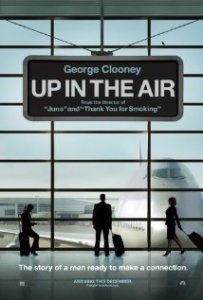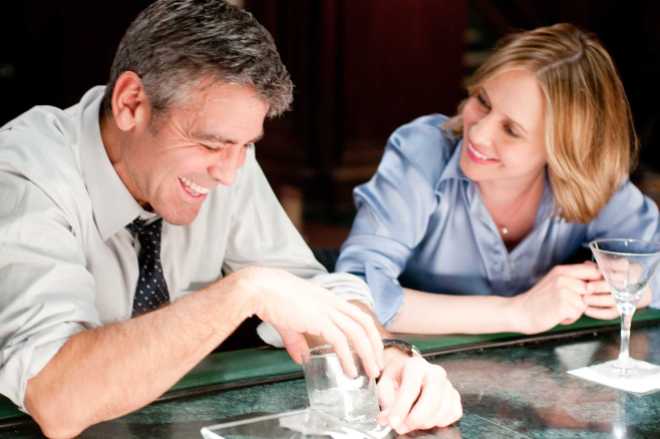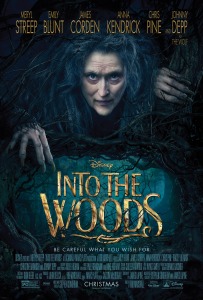Jason Reitman’s third film reflects how he has evolved into the filmmaker he is today, for better or worse.
 Few directors other than perhaps M. Night Shyamalan (and even he still has some admirers) have experienced such a dramatic shift from critical acclaim to cinematic whipping boy than Jason Reitman.
Few directors other than perhaps M. Night Shyamalan (and even he still has some admirers) have experienced such a dramatic shift from critical acclaim to cinematic whipping boy than Jason Reitman.
Once considered an indie darling with thought provoking films like “Thank You For Smoking” and charming affectations of the high school experience like “Juno”, Reitman took a rapid nosedive in respect with his last two films, both unseen by me, that any mention of his name seems to illicit furrowed brows. Like Bono and U2 in 2014, Reitman’s past marvels have been marginalized and erased by their current transgressions to be made into the most hated in America.
The first misstep was “Labor Day”, an uncharacteristic melodrama and romance known for a pie-making scene that’s just about the worst metaphor for sex and romance ever captured on film. His most recent, 2014’s “Men, Women and Children”, was seen as Reitman sinking even further out of touch with humanity than ever before. It’s an unsettling portrait of suburbia that uses grave self-importance to treat the Internet, smartphones and all modern technology as the roots of all evil. Lambasting the film was like critics taking revenge on the fact that “American Beauty” ever won Best Picture.
“Up in the Air” however, Reitman’s third film, was once considered his crowning achievement, and released at the tail end of the first decade of the 21st Century, felt like a brilliant, touching, satirical portrait of the Way We Live Now. How did this guy fall out of touch so quickly? What caused critics to turn against him so fast?
The truth is that “Up in the Air” is not as out of line with the themes of “Men, Women and Children” as you might expect. In fact you might even say that “Up in the Air” reflects a natural progression of a young independent director evolving as an artist and storyteller.
George Clooney plays Ryan Bingham, a man whose job it is to fire people for a living, brought in by other companies as a way of easing the transition by means of placement services and George Clooney’s charming, calming reassurance. Reitman earns points by turning the story into a documentary on a crumbling economy, with companies being downsized and people losing their jobs left and right. Reitman interviews non-actors and has them react to their termination in a way that reflects a semi-documentary style that Richard Linklater would recreate later in “Bernie“.
But Reitman is more interested in making Bingham into a charming louse, preaching the idea of ditching all the belongings we shove into our metaphorical “backpack” in order to live a more efficient and productive life. He relishes the little touches of customer loyalty that keep his life in orbit, he’s casually racist and stereotypical when selecting security lines to wait in, and he scoffs at the idea of marriage or anything else as an institution. He and his alter-ego “with a vagina” Alex (Vera Farmiga) both get off on comparing the weights in their rewards cards and on how many collective miles they’ve racked up over time.

Clooney and Farmiga have steamy chemistry, and Reitman’s dialogue allows them to zip along like Cary Grant and Rosalind Russell in “His Girl Friday” or some other classical screwball comedy. Separated from that context however, Reitman makes Clooney and Farmiga come across as frustratingly smug, condescending to people with bulky suitcases, collapsable strollers and those who rent from that awful new car rental place with terrible kiosk placement.
The idea that most people don’t talk the way Clooney and Farmiga do is something that first rubbed people the wrong way with Juno McGuff, as though her early 2000s slang and wit made her appear pretentious. Reitman there however had the crutch of Diablo Cody’s wickedly ridiculous and infectious script. Here they’re likable but difficult; they’re the kind of people you want to hate, and Reitman doesn’t seem to mind.
Ryan however is gradually revealed to be a shockingly unhealthy person. Without emotional connections of a meaningful sort, he’s without real ambition or direction in his life, and in the film’s final shot, he can be seen standing in front of an immense departures board completely lost as to where to go or what to do with the tiny backpack of belongings he has to his name. As a storytelling device, it works gangbusters, turning this business professional into an actual human with grace and humor over time.

But as a philosophical statement, it’s a plea for the more traditional American Dream. The one thing Ryan does take seriously is when his younger self Natalie Keener (Anna Kendrick in her breakout role) seeks to digitally disrupt his industry, firing people via video technology and saving her company a whole lot of time, money and awkward, face to face encounters with disgruntled employees. Knowing how people react in this situation, he’s appropriately wary of the rise of new technology and change. But of course this isn’t just about break-ups through text message or firing through Skype; it’s about America, and how technology gets us further away from the human interactions and precision that allow Ryan to do his fastidious job so well.
It all comes to a head when Ryan travels to Milwaukee to attend his sister’s wedding. Ryan’s family is as quick as Natalie at calling his BS about throwing away attachments, and the images of love and marriage provide a gooey change of heart for Ryan that maybe love and a normal life on the ground would be for him.
Natalie even has an interesting scene with Alex and Ryan shortly after her boyfriend has broken up with her that subtly reflects Reitman’s conservative values. “I don’t want to say anything that’s anti-feminist,” she says, “but sometimes it feels like, no matter how much success I have, it’s not gonna matter until I find the right guy.” There’s nuance to this exchange for sure, but how might this line go over in 2015?
Reitman has spent the whole of two hours subtly picking away at the technological institutions that can transform business and people’s lives, opting instead for the nuclear family in the Middle America that is Milwaukee. Is this so different than starting “Men, Women and Children” in “outer freaking space” as a scary metaphor for the rise of the Internet? Most would agree that “Up in the Air” is a much better film, and that even if Reitman shares some different values, this is an emotional, compelling, competently told story by a filmmaker with his feet on the ground and his head out of the clouds. At the very least though, revisiting “Up in the Air” has been a revealing experience as to just how this promising director at the top of the world started to lose his footing.
 Any points “The Accountant” earns as a portrait of high functioning autism are quickly erased when Gavin O’Connor’s film simply becomes Ben Affleck as Batman with a gun. The film hardly blends genres but mashes them up into a complex, albeit fun and thrilling action caper.
Any points “The Accountant” earns as a portrait of high functioning autism are quickly erased when Gavin O’Connor’s film simply becomes Ben Affleck as Batman with a gun. The film hardly blends genres but mashes them up into a complex, albeit fun and thrilling action caper.
 Few directors other than perhaps M. Night Shyamalan (and even he still has some admirers) have experienced such a dramatic shift from critical acclaim to cinematic whipping boy than Jason Reitman.
Few directors other than perhaps M. Night Shyamalan (and even he still has some admirers) have experienced such a dramatic shift from critical acclaim to cinematic whipping boy than Jason Reitman.

 Do we really need another movie or show that reimagines old fairy tales? How many different ways can we tell the story of Cinderella? Stephen Sondheim’s musical “Into the Woods” first premiered in 1987, but since then the spirit of taking beloved childhood properties and twisting their meanings to play up the dark imagery and fables at their core has exploded into pop culture. It hardly seems new to suggest that the Little Red Riding Hood story has gross undertones of, perhaps, pedophilia or otherwise. Ooh, how sinister.
Do we really need another movie or show that reimagines old fairy tales? How many different ways can we tell the story of Cinderella? Stephen Sondheim’s musical “Into the Woods” first premiered in 1987, but since then the spirit of taking beloved childhood properties and twisting their meanings to play up the dark imagery and fables at their core has exploded into pop culture. It hardly seems new to suggest that the Little Red Riding Hood story has gross undertones of, perhaps, pedophilia or otherwise. Ooh, how sinister.